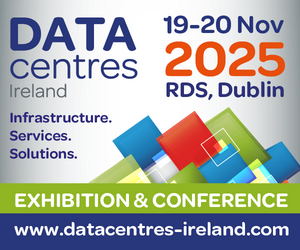
UCD research receive ERC Advanced Grants totalling €5m
Two researchers from University College Dublin have been awarded €2.5 million each under the European Research Council (ERC) Advanced Grants scheme to pursue projects on the platform economy and gravitational waves.
The UCD awardees are among 281 researchers across Europe to receive grants worth a total of €721 million. The competition attracted a total of 2,534 proposals.
Professor of Information & Communication Studies Kylie Jarrett will lead LivePlatforms (Livelihoods in the Platform Economy Ecosystem), an exploration of the platform economy. Associate Professor in Applied & Computational Mathematics at UCD, Barry Wardell, will develop models to accurately detect and analyse Gravitational Waves under the EMRIWaveforms banner.
LivePlatforms will examine this rapidly growing ecosystem in Ireland for the first time, with a view to development of fair, secure, and decent work for the sector.
Generating incomes through digital platforms takes many forms, from Deliveroo food delivery riders or freelance data workers hired through Upwork, to online creators like YouTubers and influencers, and resellers trading on Etsy or Vinted. A 2022 survey of over 1,700 Irish workers found that 31.4% had engaged in digitally mediated work, highlighting the increasing significance of this work to the economy.
Prof Jarrett said: “LivePlatforms is about understanding how people generate livelihoods in the platform economy in Ireland, seeking to identify the various actors that make that possible – and also those that might make it more difficult.
“From delivery riders to influencers, work mediated by digital platforms takes many varied forms and is increasingly important to the economy. It is therefore vital we build up a more holistic picture of the ecosystem of which it is composed. The support of the ERC will allow us to build this picture at a large scale, generating important insight into the Irish context while also developing a model for researching platform work at a national scale that can be applied elsewhere.”
Associate Professor Barry Wardell, UCD School of Mathematics & Statistics, leads the EMRIWaveforms (Waveforms for Extreme Mass Ratio Inspirals) project.
The breakthrough detection of Gravitational Waves was celebrated with the 2017 Nobel Prize in Physics. Gravitational Waves are ripples in the fabric of space-time emitted during powerful astronomical events. Detection and analysis of these waves could revolutionise our understanding of the universe.
The EMRIWaveforms team will work with the European Space Agency’s Laser Interferometer Space Antenna (LISA) – the first mission to probe the entire history of the universe using Gravitational Waves – to find and decode these important signals.
Wardell explained: “Gravitational waves have opened a completely new way of exploring the universe – but we’ve only just scratched the surface. With the upcoming LISA mission from the European Space Agency, we’ll be able to ‘hear’ signals from some of the most extreme events in the cosmos, including black holes the size of our Sun spiraling into supermassive black holes millions of times larger.
“These signals, known as EMRIs (Extreme Mass Ratio Inspirals), are rich in information but incredibly hard to detect without precise models to guide the search. That’s where my project EMRIWaveforms comes in. Thanks to the support of the European Research Council, my team will develop the first accurate models of these signals, helping LISA unlock discoveries that are currently out of reach. This research is key to making sure we don’t miss some of the universe’s most fascinating secrets.”
UCD has now secured 35 ERC frontier grants under the Horizon Europe Programme – totalling €73 million, this constitutes over 40% of the national ERC total for the programme.
Ekaterina Zaharieva, European Commissioner for start-ups, research, & innovation, said: “These ERC grants are our commitment to making Europe the world’s hub for excellent research. By supporting projects that have the potential to redefine whole fields, we are not just investing in science but in the future prosperity and resilience of our continent. In the next competition rounds, scientists moving to Europe will receive even greater support in setting up their labs and research teams here. This is part of our ‘Choose Europe for Science’ initiative, designed to attract and retain the world’s top scientists.”
The 281 new Advanced Grant recipients are based at universities and research centres in 23 EU Member States and associated countries. Estimates show that the grants will create approximately 2,700 jobs.
TechCentral Reporters







Subscribers 0
Fans 0
Followers 0
Followers